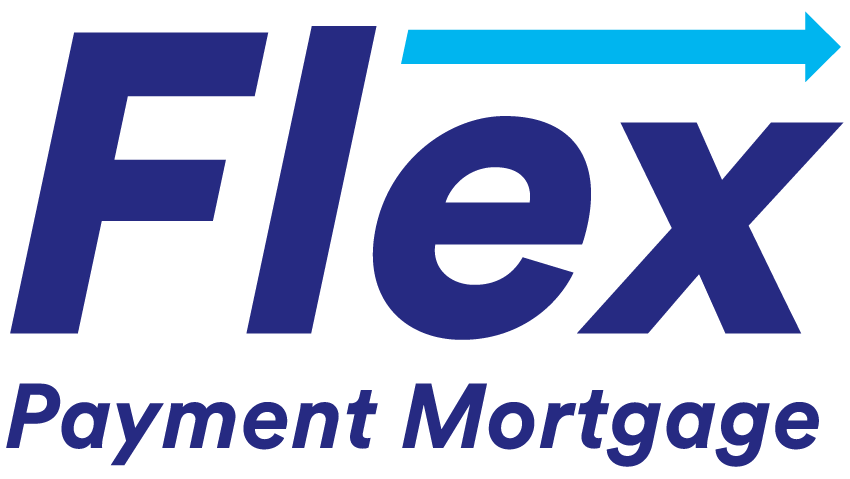
With a Flex payment Mortgage, your home is your key to financial flexibility.


With a Flex payment Mortgage, your home is your key to financial flexibility.
What is a Flex Payment Mortgage?
The Flex Payment Mortgage suite of loan programs empower homeowners over the age of 62 to use their home equity with more flexibility than traditional home equity mortgages.
Flex Payment Mortgage benefits
A Flex Payment Mortgage gives the homeowner more control over their home equity.
Choose how much you want to repay or even if you want to repay the loan at all.
Choose how you want to receive your money.
Choose how you want to use your money.
Popular uses for Flex Payment Mortgages
- Eliminate mortgage payments
- Supplement income
- Make home improvements
- Pay for large expenses
- Move closer to family
- Purchase a new home better suited for you
Flex Payment Mortgage programs
Flex Payment Home Equity Conversion Mortgages (HECMs)
With a Flex Payment Home Equity Conversion Mortgage you’ll never owe more than your home’s value, eliminating the risk of losing your home. Federal mortgage insurance premiums provide this safety net. Repayment occurs only when the last borrower passes away, moves out or sells the home, with the proceeds of the sale repaying the interest accrued on the loan. You can also choose to make occasional payments to manage the loan balance. Flex Payment Home Equity Conversion Mortgages can be used to refinance from a traditional loan, or to purchase a new home without mortgage payments.
Flex Payment Home Equity Conversion Mortgage refinancing
Refinance your existing loan into a Flex Payment Home Equity Conversion Mortgage to pay off your existing mortgage and/or eliminate mortgage payments. You can choose to set up a line of credit from the mortgage, receive regular payments from your home equity to supplement income, or receive a lump sum to pay off debt or large expenses. You can also refinance your existing Home Equity Conversion Mortgage to better terms as the market changes.
Flex Payment Home Equity Conversion Mortgages for purchase
The Flex Payment Home Equity Conversion Mortgage for purchase allows you to use the proceeds from the sale of your current home (or other savings) as a down payment on your new home. Your Flex Payment Home Equity Conversion Mortgage covers the remaining balance. You can then choose to repay as much as you want or make no monthly payments.
Flex Payment Jumbo Mortgages
Flex Payment Jumbo Mortgages are for homeowners with higher-value properties, lending up to $4 million. These mortgages do not require mortgage insurance and are not subject to federal lending limits. This is how they can offer more flexibility and larger loan amounts.
Is a Flex Payment Mortgage right for you?
A Flex Payment Mortgage may allow you to leverage your home equity if:
- You are a homeowner aged 62 or older
- Own and occupy your home as your primary residence
- Attend a HUD counselling session (for Flex Payment Home Equity Conversion Mortgages)
- Stay current on property taxes, insurance and Homeowner’s Association (HOA) fees, if applicable
Curious what a Flex Payment Mortgage can do for you? Complete the form below to connect with a Flex Payment Mortgage specialist in your area.

Important information:
At the end of the Flex Payment Mortgage loan term, some or all of the property’s equity won’t belong to the borrower, and they may need to sell or transfer the property to repay the proceeds of the Flex Payment Mortgage. Guild will add the applicable Flex Payment Mortgage origination fee, mortgage insurance premium, closing costs, or servicing fees to the balance of the loan which will grow, along with the interest, over time. Interest isn’t tax deductible until all or part of the loan is repaid. Failing to pay property taxes, insurance, and maintenance might subject the property to a tax lien, foreclosure, or other rights that are defined in the Mortgage. Insurance is required to have a mortgage, and if there is a gap in coverage then Guild may need to force place insurance.
These materials are not from HUD or FHA and were not approved by HUD or a government agency. A Flex Payment Mortgage is a mortgage loan against a home’s equity. Flex Payment Mortgage’s are Guild’s suite of a reverse mortgage products. HECMs are federally insured by the FHA. Borrower must maintain home as principal residence, pay all taxes, insurance, maintain the home, and comply with all other loan terms. Fixed-rate and adjustable-rate Home Equity Conversion Mortgages (HECMs) are insured by the Federal Housing Administration (FHA). Fixed-rate loans are distributed in a single lump sum with no future draws. Adjustable-rate mortgages offer five payment options and allow for future draws. The age of the youngest borrower determines the amount of funds available that can be received during the first 12-month period, subject to an initial disbursement limit. In some states, only one borrower must be at least 62 years old. The state of Texas requires that both borrowers are over the age of 62. Not available in the state of Massachusetts.
All loans subject to underwriter approval; terms and conditions may apply. Subject to change without notice. Always consult an accountant or tax advisor for full eligibility requirements on tax deduction.


